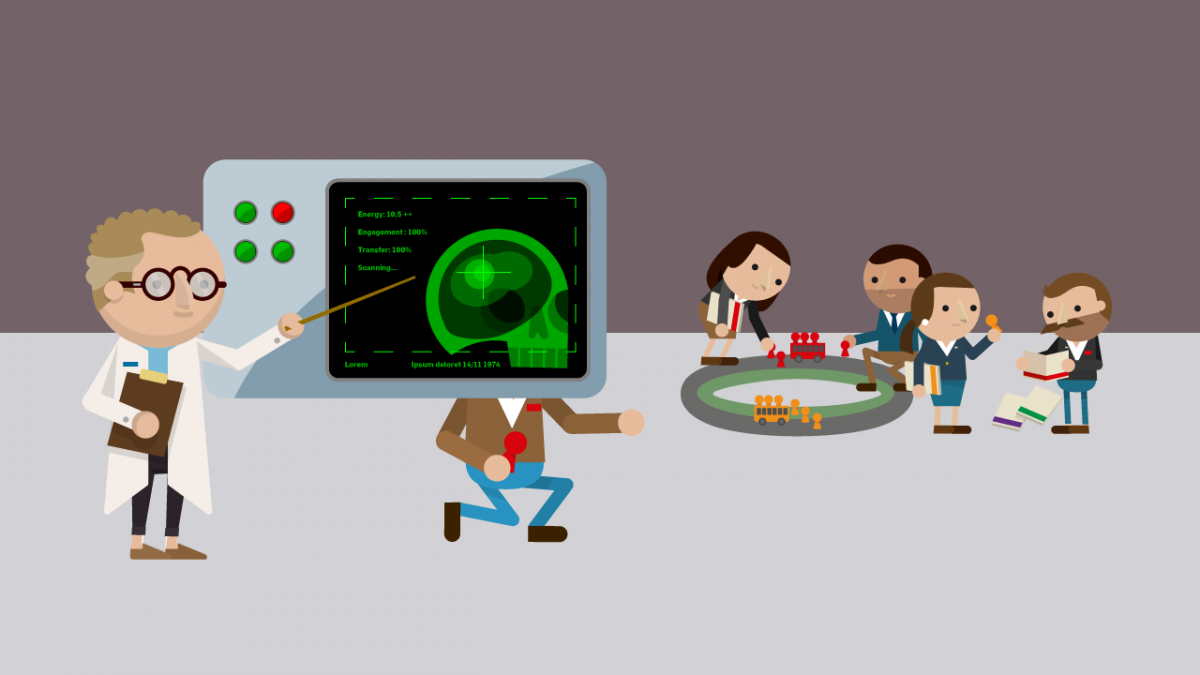What happens in the mind when we play? How can games and simulations accelerate learning and understanding? In which ways do physical simulations affect the mind differently than digital games? What can neuroscience tell us about the difference in learning output when comparing collaborate game-based processes to individual training concepts like e-learning?
These are some of the topics that we look forward to exploring in a new reseach partnership we have formed with the department of Teaching and Learning at Washington State University and Interacting Minds Centre at Aarhus University in Denmark. In the winter and spring of 2016 we will run a series of scientific experiments at the Neurocognitive Science Laboratory in Pullman. We will be using neuroimaging and physiological measurements and Gamechangers andWallbreakers are two of the leadership simulations that will be tested.
We are currently in dialogue with different corporations who have an interest in the neuroscience of gamification and experimental learning and who wish to take part in the collaboration. If you are interested in participating please let us know.


